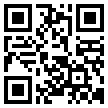Introduction
Charles Bonnet Syndrome (CBS) is a condition in which individuals experience hallucinations. It occurs when individuals lose some or all of their vision. They tend to see things that do not exist. However, people with CBS are aware that the hallucinations are not real. Hallucinations do not always point to a mental problem.
CBS derives its name from Charles Bonnet, a scientist from Switzerland. He described the disease experienced by his grandfather and later developed it himself. About one in five individuals with retinal conditions like macular degeneration develop CBS. It can occur in anyone but is more popular in those aged 80 and above.
Having hallucinations does not necessarily mean that one’s vision is worsening. Individuals with mild vision loss or blind spots can experience hallucinations.
Also Known As
CBS
Causes and Risk Factors
CBS is caused by loss of vision from diseases such as diabetic retinopathy, age-related macular degeneration and glaucoma. In normal vision, the retina receives the light rays entering the eye. It then converts the rays into visual images which are sent to the brain to enable vision. Once vision is lost, the visual system fails to process new images. Since the brain is used to receiving images, it fills up that void by making up images or recalling stored images to enable an individual to see.
Risk factors may include:
- Older age
- Worsening visual acuity
- Social isolation
- Cognitive impairment
- Cortical atrophy – An uncommon variation of Alzheimer’s disease
Signs & Symptoms
The main symptom of CBS is experiencing visual hallucinations especially upon waking up. These hallucinations can be still or be in motion. They can last for seconds, minutes or even hours and can occur over several days to years. The delusions come in black and white. One may see the following:
- Insects, animals and people
- Repeated dots, lines and other geometric shapes
- Imaginary creatures such as dragons
- Landscapes like waterfalls and mountains
- People dressed in medieval costumes
Diagnosis
There are no special tests to detect CBS. The eye care professional will try to get the individual’s medical history. Eye diseases are not the only sources of hallucinations. Consequently, the professional will try to find out if there are other causes like:
- Mental illness, e.g. schizophrenia
- Certain medications
- Neurological conditions such as Parkinson’s disease or dementia
- Withdrawal from drugs and alcohol
Treatment
Treatment of CBS is directed towards helping the patient cope and manage the condition.
Medical Treatment
There is no known treatment for hallucinations. However, in case of hallucinations caused by another eye disease such as cataract, that particular disease will be treated.
What the CBS patient needs is therapy where he/she can talk about the hallucinations with a therapist. Talking about the delusions can make the patient feel less isolated.
Repetitive transcranial magnetic stimulation can also be used to modulate brain activity.
Home Care
Describing the hallucinations with a family member or friend can help the patient psychologically.
The patient should join a CBS support group. Here, the patient will receive tips and strategies for coping with the situation. These meetings help to reassure the patient that the hallucinations are caused by loss of vision as opposed to a mental illness.
One can also change his/her environment. For example, if one often experiences hallucinations in dim light, they might have to consider bright light. The patient can turn on more lights or draw open the curtains. If quiet places trigger the hallucinations, the patient may turn on the radio or TV.
Eye movement has been shown to work in some individuals to stop the hallucinations. These movements may include:
● Looking away from the illusions
● Moving the eyes side-to-side or up-and-down without moving the head
● Sessions of closing and opening the eyes
● Staring intently at the hallucinations
Relaxation can help with hallucinations. Some patients experience hallucinations when they are stressed or tired. A patient is advised to get enough sleep and cut on stress and anxiety. Meditation and such other practices can help an individual to relax.
The patient can also use low vision aids to maximize whatever little vision is present.
Prognosis/Long-term outlook
Hallucinations tend to slow down considerably or disappear after a year or two. However, it is possible to experience occasional hallucinations many years after they have stopped. Individuals with CBA do not experience threatening or scary hallucinations. Over time, when these individuals adjust to the new condition, they learn how to manage it.
Some medications CBS people take for other ailments can cause more hallucinations. One is advised to consult their physician over these medications.
Optimal eye care and regular visits to the eye doctor are necessary.

